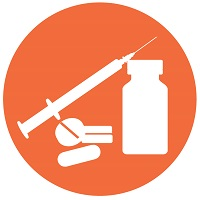Back
Clinical Pharmacology – Chemical
Session: Rapid Fire: Model Informed Drug Development (MIDD): Role in Dose Selection, Vulnerable Populations, and Biowaivers (CE)
No Polysorbate 80 Effect on Human Intestinal Drug Permeability
Tuesday, October 18, 2022
3:45 PM – 4:00 PM ET
Location: 151 AB

James E. Polli, Ph.D., FAAPS
Professor
University of Maryland School of Pharmacy
Baltimore, Maryland
Rapid Fire Speaker(s)
Despite no broad, direct evidence in humans, there is a potential concern that surfactants alter active or passive drug intestinal permeation to modulate oral drug absorption. The purpose of this study was to investigate the impact of the surfactant polysorbate 80 on active and passive intestinal drug absorption in humans. The human (n=12) pharmacokinetics (PK) of three probe substrates of intestinal absorption were assessed. Polysorbate 80 did not inhibit peptide transporter 1 (PepT1)- or apical sodium bile acid transporter (ASBT)-mediated PK of valacyclovir and chenodeoxycholic acid, respectively. Polysorbate 80 did not increase enalaprilat absorption. Modest increases in unconjugated secondary bile acid Cmax ratios suggest a potential alteration of the in vivo intestinal microbiota by polysorbate 80. Polysorbate 80 did not alter intestinal membrane fluidity or cause intestinal membrane disruption. This finding supports regulatory relief of excipient restrictions for Biopharmaceutics Classification System-based biowaivers.
Learning Objectives:
- Upon completion, participant will be able to list probe compounds for active and passive intestinal permeability.
- Upon completion, participant will be able to describe evidence supporting lack of polysorbate 80 effect on human intestinal drug permeability.
- Upon completion, participant will be able to consider regulatory relief of excipient restrictions for Biopharmaceutics Classification System-based biowaivers.


